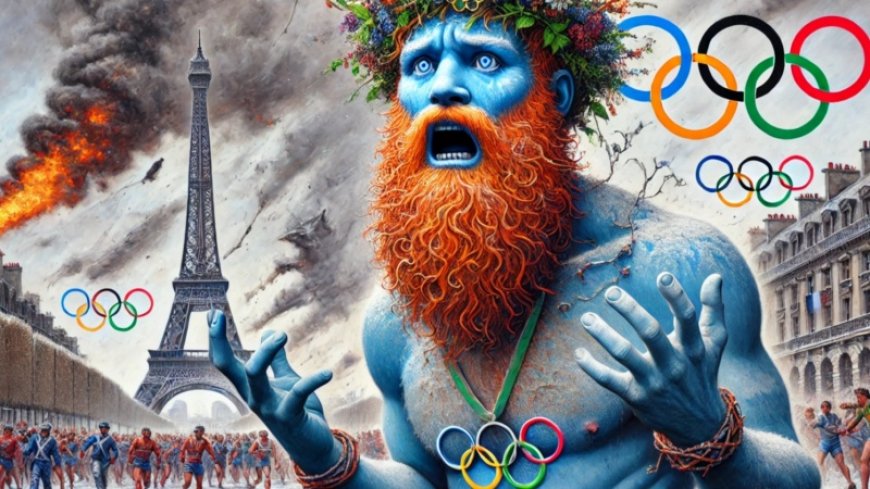Controversy Erupts Over 2024 Paris Olympics Opening Ceremony: Accusations of Blasphemy and Ethical Concerns

In a stunning development, the opening ceremony of the 2024 Paris Olympics has ignited intense controversy and criticism from around the globe. The event, which was intended to showcase France's cultural vibrancy and hospitality, instead has been described by critics as a troubling spectacle rife with human rights violations and offensive content.
According to recent social media polls and international observers, the ceremony has been perceived as an affront to fundamental human values and religious sensitivities. The event featured several provocative elements, including the controversial portrayal of a homosexual character and scenes that many viewers found deeply offensive to Christian morals.
One of the most contentious aspects of the ceremony was the use of Leonardo da Vinci's iconic painting, "The Last Supper," which was interpreted by some as being depicted in a manner that many viewed as blasphemous. The inclusion of this imagery in a context perceived as disrespectful to Christian beliefs has fueled widespread outrage.
Critics have also voiced concerns over the portrayal of various sexual themes, including disturbing references to pedophilia, which they argue undermine human dignity and decency. Additionally, the involvement of young children in these scenes has been met with disapproval, with some commentators suggesting it reflects a troubling trend in modern cultural presentations.
Javier Tebas, President of LaLiga and a prominent figure in the Olympic organization, expressed his disapproval via social media, labeling the depiction of religious imagery as "unacceptable" and "a disgrace." His comments echoed the sentiments of many who believe that the ceremony failed to respect both religious traditions and the Olympic spirit.
The French bishops have also weighed in, condemning the ceremony's content and expressing regret over its perceived mockery of Christianity. Their statement highlights a broader concern about the erosion of respect for religious beliefs in public and cultural spaces.
Adding another layer to the controversy, anti-war activists have criticized the inclusion of symbolic references to geopolitical conflicts, particularly focusing on the portrayal of Israeli military themes. These activists argue that such elements are inappropriate for a global event like the Olympics and reflect a broader disregard for the plight of Palestinians.
The backlash against the opening ceremony underscores a growing debate about the role of freedom of expression in cultural and sporting events. While some argue that the ceremony represents a reflection of contemporary European values and a commitment to free speech, others contend that it crosses the line into offensive and harmful territory.
As the 2024 Paris Olympics progresses, the impact of the opening ceremony's controversial elements will likely continue to resonate across international discourse. The debate raises important questions about the balance between artistic expression and respect for diverse cultural and religious sensibilities in global events.
Additional Information
In response to the widespread criticism, the International Olympic Committee (IOC) has yet to issue an official statement regarding the ceremony's content. Meanwhile, French officials have defended the show as a representation of modern French values and artistic innovation, though they have indicated a willingness to engage in dialogue about the concerns raised.
The ceremony’s producers have also defended their choices, asserting that their intent was to challenge traditional norms and provoke thought rather than to offend. Despite these defenses, the controversy underscores the complex interplay between cultural expression, public sentiment, and global standards of respect.
As the 2024 Paris Olympics unfolds, it remains to be seen how the fallout from the opening ceremony will influence the broader reception of the Games and future discussions about the intersection of art, politics, and international sporting events.













































